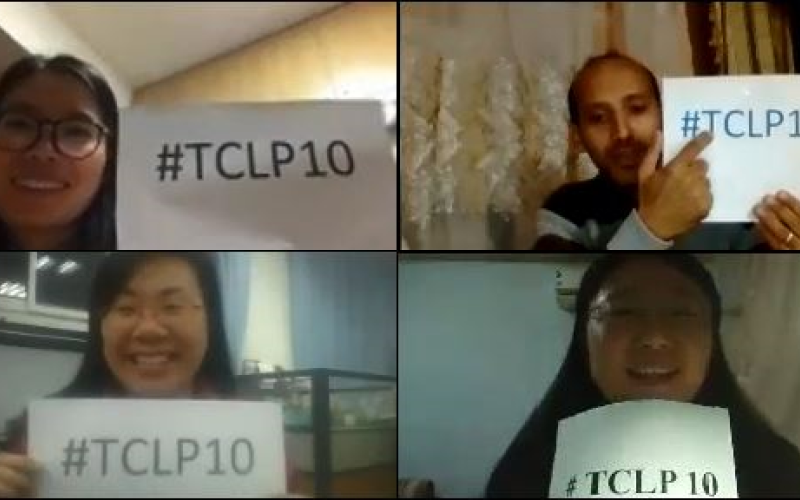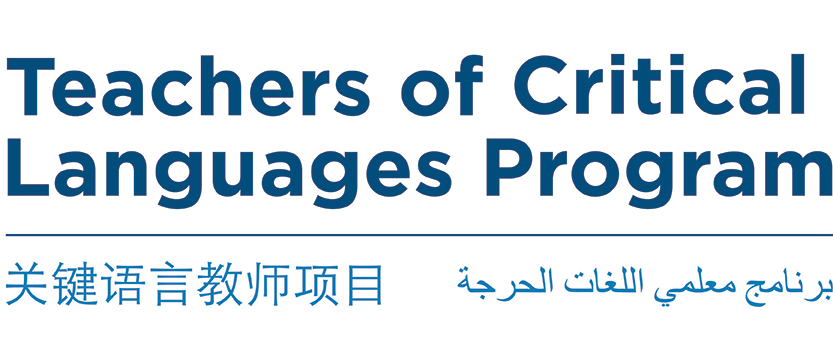
The latest Alumni Virtual Training Conference provided a platform for TCLP alumni to share their success, advice, and learn from each other, as well as celebrate 10 years of the program. The featured alumni speakers were enthusiastically received by their peers during the round-table style conference. Alumni from China and Egypt met for over two-days virtually. The sessions were facilitated by TCLP staff and featured alumni who have achieved leadership positions in their schools, departments, and districts. On day one of the conference, TCLP alumni Yu Meihong (2008-2009), Samar Abdelfatah (2015-2016), Yu Yifang (2009-2010) and Mohamed Abdelsamad (2011-2012) discussed leading by example in your educational community, how to advocate for change in your school, and resources and best practices to cultivate leadership skills. On day two, Ezzat Gadelmola (2010-2011), Zhang Hong (2009-2010), Hanan Gawdet (2012-2013) and Cheng Ye (2011-2012) shared how they are using their international experiences as school leaders and best practices for effective leaders. To watch the sessions, as well as previous conferences, please visit the Alumni Resources page: http://tclprogram.org/content/conference/4th-annual-tclp-virtual-alumni…
TCLP alumni in general have reported that their careers have progressed since teaching in the United States. In a follow up survey to the conference alumni shared the following.
When asked about their career growth alumni acknowledge that:
• Tang Beiyi (2011-2012): “TCLP has broadened my horizons, trained my abilities in all aspects and promoted my career as an English teacher in China.”
• Mohamed Mehanny (2013-2014): “TCLP helps us to get advanced positions in our schools. People around us come and ask for advice and help.”
• Tan Jin (2015-2016): “TCLP helped me improve my teaching skills and language proficiency, enrich my cross-cultural work experience, which benefits me a lot as a language teacher and school international affairs worker."
• Mohamed Abdelsamad (2011-2012): “Being exposed to different educational situations has enhanced my awareness about how different schools are run. I have met different styles of leaders starting with the program staff, then the principals of schools I have visited, people from universities, department heads, etc.”
Alumni also described how they have taken the lead in their educational communities:
• Li Xiulan (2014-2015): “(TCLP) has brought me more chances to give speeches about American education and advanced teaching methods I've learned in the U.S.”
• Amany Kasab (2015-2016): “I'm arranging for a training course for other English teachers in my district next term.”
• Jia Lili (2015-2016): “I was invited by the educational leaders in the city to do a training.”
• Mohamed El-Dwiny (2011-2012): “I trained other teachers in my school and in the district about using some strategies and techniques that I have learned during my participation in TCLP.”
• Zhang Juncheng (2012-2013): “I built the relationship between my school and the school district in the U.S. We share our culture and language during holidays.”
Home schools and districts have also benefited from TCLP alumni leadership. Alumni have introduced new ideas and innovations:
• Chen Fangfang (2013-2014): “I tried a Spelling Bee Competition for the whole grade twice to help the students memorize words and started studying helpful projects then shared with my colleagues.”
• Amany Kasab (2015-2016): “I suggested a monthly professional training course for the other teachers at school. I also introduced a proposal to my head English supervisor in my district to arrange for a training course for other English teachers in other schools.”
• Tan Jin(2015-2016): “Backward lesson planning, student-centered activities like think-pair-share, quiz-quiz-trade, jigsaw.”
• Mohamed Mehany (2013-2014): “I lead a program that train on scaffolding for EFL teachers across my governorate run by RELO. I represent Nile Tesol in my governorate to help EFL teachers and all English Educators. I help all teachers from different places rather than my governorate to join programs.”
• Mohamed El-Dwiny (2011-2012): “I conducted two training sessions to more than 50 teachers in the district about the best practices in language teaching.”
• Zhang Juncheng (2012-2013): “I organized the conference about personalized learning in my school. And I invited American Teachers to come visit our school.”
Students of TCLP alumni are benefiting from a globalized classroom. TCLP alumni shared that they are implementing cross-cultural projects:
• Amany Kasab (2015-2016): “I prepared for a Skype meeting between my Egyptian school and the American one. They completed a cross cultural project (CLP). We also talked about grants for hosting foreign students in the U.S.A.”
• Tan Jin (2015-2016): “Our school held a big event to celebrate Christmas this year. We call it‘ Having Christmas in America’. The event was held on Dec. 23rd, 2016. I was the planner and organizer of this event. I came up with this idea because of the great moments I’ve had in America with my host family last Christmas. All our 736 students and 50 teachers took part in the event, and many parent volunteers were there too.”
• Jia Lili (2015-2016): “I implemented more cultural concepts to my students and they are learning more behind the language with more fun!”
Important to being an effective leader, TCLP alumni also improved their communication skills:
• Mohamed Mehany (2013-2014): “Presentation skills, when to begin and when to finish, and how to communicate with people with different backgrounds.”
• Gu Zhen (2014-2015): “To be both listener and speaker. Different ways to organize an activity or a meeting. Try to activate the listeners.”
• Jia Lili (2015-2016): “I learned to deal with people of diversities! I learned to listen more and think more.”
TCLP alumni also improved their leadership skills by continuing relationships with their U.S. host schools:
• Li Xiulan (2013-2014): “I still keep in touch with my host school in the U.S. and went to see the principal and some teachers from that school when they came to China last June.”
• Ezzat Hassan (2015-2016): “I learned a lot from my school and I try to implement Project-Based Learning.”
• Amany Kasab(2015-2016): “I'm still keeping in touch with my host school in order to arrange for any future co-operation.”
Alumni also learned from the U.S. educational system and applied this experience in to their careers:
• Mohamed Abdelsamad (2011-2012): “I admired the educational system in the U.S. because it is concentrated on creating a good student with high self confidence. No Students are neglected. Teachers are well prepared and their role is appreciated.”
• Tamer Elsharkawy (2015-2016): “Decentralization can work well”
• Qu Bingbing (2014-2015): “The deepest impression is the open policy which provides children enough chances to connect with the whole world with real teachers and friends”
• Chen Fangfang (2013-2014): “Make me think about the differences and try to understand it. Figure out a better way for my students.”
Alumni also commented on how their world views changed from participating in TCLP:
• Tan Jin (2015-2016): “I understand that although people from different countries have many differences, we do have a lot of things in common as well. I believe that the more chances for people from different countries to know each other and get to cooperate are offered, the better solutions we'll get for the global problems in nowadays.”
• Mohamed Abdelsamad (2011-2012): “I discovered that the world is much smaller than I had expected. The differences between people are much slighter than I have expected.”
Alumni also recommended resources in their home countries that would aid their peers in developing their leadership skills. They suggested online resources and presentations that can be downloaded, including TCLP conferences and informational materials. Egyptian alumni felt the Nile TESOL conference and professional development courses offered at the American University in Cairo were beneficial. Chinese alumni encouraged colleagues to attend national teaching conferences, events through the U.S. Embassy in China’s Regional English Language Office, and to review materials on Asia Society’s website.
Alumni continue to impact their local educational institutions and organization through the best practices they learned in the U.S. They are also encouraging educational community members to explore opportunities for cultural exchange:
• Li Xiulan (2013-2014): “I have introduced TCLP to the leaders and teachers at many meetings.”
• Mohamed Abdelsamd (2011-2012): “I want to have all the teachers in my district apply student based learning which would be very effective.”
• Zhang Juncheng (2012-2013): “I host some national primary school English teaching conferences.”
• Gu Zhen (2014-2015): “I am a member of the Returned Students and Scholars Association of my city.”
• Ezzat Hassan(2015-2016): “Using a grant which can help me to link between my community and U.S. schools”
• Chen Lei (2015-2016): “I'd like to help more people to know about American culture and society.”
• Amany Kasab (2015-2016): “I hope I can make a real change in the field of teaching English.”
• Jia Lili (2015-2016): “I want to organize a summer camp for some students so they can experience the differences in education and culture.”
• Qu Bingbing (2014-2015): “With the help of 2 other alumni, I will make a workshop for about 200 teachers in our city to share our experiences and success.”
TCLP alumni are leaders in their community and will continue to impact their home and host communities. Their experiences in the U.S. guides them to continue to grow professionally and expand mutual understanding both in the U.S. and abroad.
